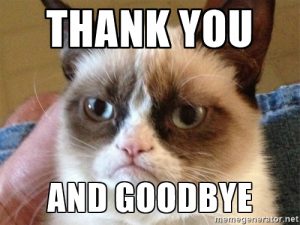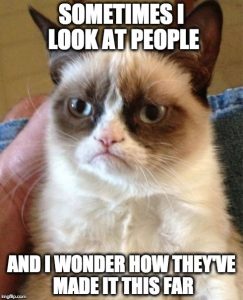Self-Assessment Reflection
As I am writing this final blog post, I am experiencing a bittersweet feeling. For the entire Summer, I have been churning up assignments after assignments alongside my fellow 301 classmates. As the course comes to an end, I will surely miss checking the English 301 course schedule for due dates. The journey from unit one to unit four has been nothing less than eventful. Not only was I able to improve my general writing skills such as my grammar and writing style, but I was also able to develop practical skills that is beneficial to my future pursuits. This is in large because of the large variation of assignments demanded from the course – from writing memoranda for our peers to generating formal reports for professional purposes.
One of my favourite things about this course is that we are given a lot of freedom in our writing. Rather than being assigned a specific topic to write about, Dr. Paterson allows us to choose our own topics for major assignments, including our formal report. By allowing us to choose a topic that we are interested in and that relates to our education/career path, we are able to focus more on improving the technical aspects rather than worrying about the actual content.
As a responsible student, I have always allocated enough time for the completion of each assignment to ensure submission before deadlines. Ironically, I am also a huge procrastinator. Even though the work I submit meets all the criteria outlined in the rubrics, I know that the quality of my work can be improved significantly if only I get started on the assignments earlier. Despite knowing this, I confess that I still only get started on my work a couple of days before it’s due; never have I looked ahead into the course schedule more than a week in advance. Perhaps this is a habit I should work on breaking for the sake of my future endeavours. My high school teacher once told me, “how you do one thing in life is how you do everything in life,” which is truly applicable to this situation.
Even with my habit of procrastination, I have never let myself go off on a tangent completely. My ability to write objectively in a clear, concise manner has benefited me in my undergrad career and my position as a clinical research assistant. Being a student in the scientific field, effective technical writing is important in writing academic papers and lab reports. My attention to detail and organization skills have also allowed me to complete tasks according to specific guidelines. Even though I am able to write objectively, English 301 has shown me that my writing techniques have a lot of room for improvement, especially in regards to writing with the “you-attitude”.
Over the course of the term, I have undergone a lot of self-development with the help of peer reviews of my work done by Stephen Lee, Hendson Szeto, and Shih-Chun Huang – members of Writing Team Chocolate. I would like to take a moment to thank my team members for all the helpful advice they provided me in a timely fashion. Lastly, I must also thank Dr. Paterson for continuously providing me with friendly feedback for improving my writing techniques throughout the course. Under her instruction, I am now much more confident in my abilities as a technical writer.


